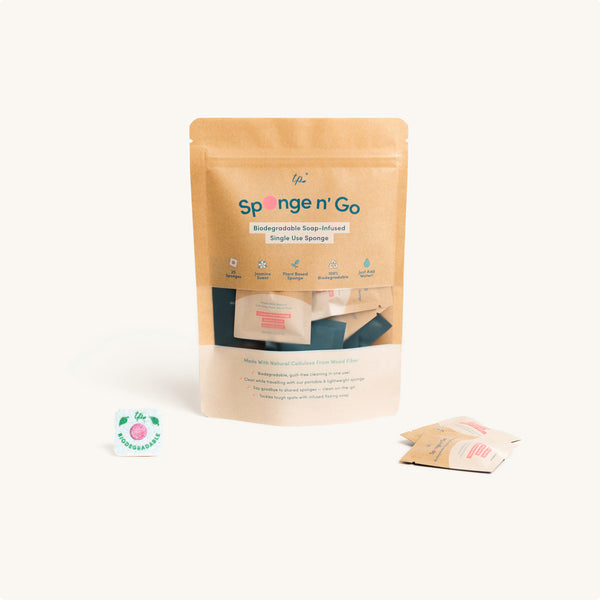Welcome back, eco-warriors! In Parts 1 and 2, we discussed how to reduce plastic waste in your kitchen by recycling and using sustainable products like Two Pillars' Duo Cover®, ZipBag®, Swedish Dishcloth, and UniLid®. But what about the waste that can't be recycled or reused? That's where composting comes in!
Composting is the process of decomposing organic matter, like food scraps, into nutrient-rich soil. Not only does it reduce waste in landfills, but it also provides a natural fertilizer for your garden. Here are some composting strategies to help you get started:
1: Set up a compost bin
You can purchase a compost bin or make your own using materials like wood pallets, wire mesh, or even an old trash can. Just make sure it has ventilation and drainage holes for proper airflow.
2: Know what to compost
You can compost fruit and vegetable scraps, eggshells, coffee grounds, tea bags, and yard waste like grass clippings and leaves. Avoid composting meat, dairy, and oils as they can attract pests and create odors.
3: Collect your compost
Use a container with a lid, like Two Pillars' ZipBag®, to collect your compostable waste in your kitchen. Empty it into your compost bin regularly to avoid any smells or pests.
4: Layer your compost
Alternate layers of "green" materials, like fresh fruit and vegetable scraps, with "brown" materials, like dry leaves or shredded newspaper. This helps create a balanced mix of carbon and nitrogen for optimal decomposition.
5: Monitor and maintain
Keep your compost moist and turn it regularly to ensure proper airflow. You should also monitor the temperature to make sure it stays between 120-160 degrees Fahrenheit, which is the ideal range for composting.
By composting, you're not only reducing waste but also creating a valuable resource for your garden. And with Two Pillars' compostable Swedish Dishcloth, you can clean up any messes without creating more waste. It's a win-win!
Thank you for joining us for this three-part series on reducing plastic waste in your kitchen. With Two Pillars' eco-friendly products and these sustainable tips, you'll be on your way to a greener, cleaner kitchen in no time.
Happy composting, friends!
Links to Two Pillars products mentioned in this post:



